Showing 21-40 of 65 results
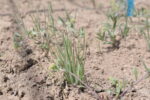 western.sare.org news restoring-rangeland-back-to-the-future
western.sare.org news restoring-rangeland-back-to-the-future Restoring Rangeland Back to the Future
Massive wildfires are on the rise throughout the West, reshaping plant communities and endangering native grasses that are a key source of forage for livestock. Reseeding with locally sourced seed is a common rangeland restoration strategy, but climate change raises an interesting question: What’s the best way to heal the land when its future environment […]
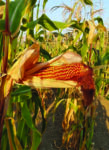 western.sare.org news researchers-work-to-develop-test-dry-farm-adapted-corn-varieties
western.sare.org news researchers-work-to-develop-test-dry-farm-adapted-corn-varieties Researchers Work to Develop, Test Dry-Farm-Adapted Corn Varieties
As farmers and agricultural researchers work to adapt to changing climatic conditions, some are looking to future innovations, some are exploring past agricultural practices, and some are doing both. In Western Oregon, a collaborative effort to establish and expand dry farming – growing crops without irrigation – is decidedly in the “doing both” camp. “There […]
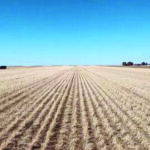 western.sare.org news experimenting-with-kernza
western.sare.org news experimenting-with-kernza Experimenting with Kernza
While some growers and researchers are experimenting with drought-adapted varieties of existing crops, others are testing more substantial shifts in agricultural practices. One of those shifts is from annual grain crops that have to be replanted every year to perennial grains that produce a crop year after year without replanting. In eastern Wyoming, a Western […]
 western.sare.org news switching-to-winter-crops-might-help-farmers-cope-with-warming-world
western.sare.org news switching-to-winter-crops-might-help-farmers-cope-with-warming-world Switching to Winter Crops Might Help Farmers Cope with Warming World
For people who grow food and cultivate the land, climate change isn’t something experienced though charts, graphs and predictions of foreboding futures. For growers, the threat of a warming world is immediate and increasing. “Climate change is playing out on farms like mine every day, every season and in every extreme weather event,” said Caitlin […]
 western.sare.org news reducing-weeds-by-80-using-solarization
western.sare.org news reducing-weeds-by-80-using-solarization Reducing Weeds by 80% Using Solarization
La Buena Tierra farmer Maria de los Angeles Carrillo (Angeles) is delighted that her interest in researching a non-chemical pest management practice has reduced her weeds by 80%. Coquillo (nutgrass) was the exception and even that stubborn grass has been reduced greatly and grows weaker roots. Lab tests also demonstrated reduced Verticillium wilt in the […]
Administrative Council Seeking Applications
The Administrative Council of the Western Sustainable Agriculture Research and Education program (Western SARE) is seeking applicants for qualified individuals for three positions representing either 1) non-government organizations, 2) agri-business, and 3) farmer/rancher on the Western SARE Administrative Council (AC). Learn More and Apply
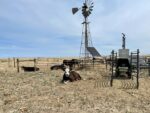 western.sare.org news the-quest-create-low-emission-cattle
western.sare.org news the-quest-create-low-emission-cattle The Quest: Create Low-Emission Cattle
As cows digest grasses and other cellulose-rich plants, microbes in their large first stomach – the rumen –break down the feed, releasing the potent greenhouse gas methane as a natural fermentation byproduct. Research is ongoing into seaweed and other additives to traditional forages to reduce methane production, creating low-emission feeds. But what if you created […]
Administrative Council Welcomes Alumni
Just because an Administrative Council Member’s term has ended, that doesn’t mean that they are no longer invested in the future of Western SARE and of agriculture in our region. For that reason, Western SARE has developed an “alumni” program and is reinvigorating it this year. The first step toward a re-energized alumni program took […]
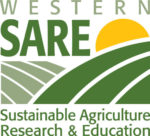 western.sare.org news recently-funded-projects
western.sare.org news recently-funded-projects Recently Funded Projects
Western SARE has funded 77 projects for 2023. These 77 projects totaled $7,363,082 in funding for six programs: Research and Education, Farmer-Rancher, Professional + Producer, Professional Development Program, Graduate Student Research & Education, and Research to Grassroots. Projects were funded in 14 states and protectorates. Example topic areas include: Overall, To review summaries of all […]
 western.sare.org news farmers-test-benefits-of-using-hemp-stalks-to-produce-mushrooms
western.sare.org news farmers-test-benefits-of-using-hemp-stalks-to-produce-mushrooms Farmers Test Benefits of Using Hemp Stalks to Produce Mushrooms
When optimists are buried in proverbial lemons, they make lemonade. When the women who own Intentional Growth Farm in Utah had too many hemp stalks, they produced exceptionally large, tasty mushrooms. “We used the hemp stalks as the nutrient source for our oyster mushrooms, and customers said they were the best mushrooms they ever tasted,” […]
 western.sare.org news playing-pest-friends
western.sare.org news playing-pest-friends Playing Pest Friends
At their annual meeting this summer, Western SARE state coordinators came together and played an educational board game about managing pests. Their experience was similar to other groups who indicate that they learn more by doing than listening. Jason Thomas and Grant Loomis, extension educators at the University of Idaho, received a Western SARE grant […]
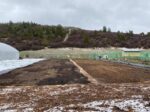 western.sare.org news farmers-test-whether-cardboard-can-keep-bindweed-at-bay
western.sare.org news farmers-test-whether-cardboard-can-keep-bindweed-at-bay Farmers Test Whether Cardboard Can Keep Bindweed at Bay
Bindweed can be the bane of farmers’ existence. The climbing vine spreads easily by seed and rigorous root system, choking off crops and other plants along the way. “Even when we till in the spring, we spend a huge amount of time hand weeding throughout the season to manage bindweed,” explained Jonah Sloven, who grows […]
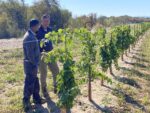 western.sare.org news reasons-to-like-wine
western.sare.org news reasons-to-like-wine Reasons to Like Wine
Reasons to like wine Number 462: It can be good for New Mexico’s native bees and other pollinators. Even though grapevines are largely self pollinating and don’t need insects like bees or butterflies to produce fruit, vineyards themselves can provide habitat for native pollinators and other insect species, benefiting both the grower and the environment. […]
Video: Testing Cover Crops in New Mexico Vineyards
Watch our newest video describing this Western SARE funded work - Miranda Kersten, IPM Program and Gill Giese, Viticulture of New Mexico State University describe their work promoting putting cover crops in vineyards. The research will demonstrate how to ensure the cover crops successfully grow and flower so that they attract pollinators and provide additional […]
 western.sare.org news cheatgrass-eating-sheep
western.sare.org news cheatgrass-eating-sheep Cheatgrass-Eating Sheep
Wildfires in the West are inevitable and part of a natural, necessary ecological cycle, but invasive grasses like cheatgrass can make fires burn hotter, spread farther and cause more destruction. So, across the West, researchers, range managers, cattle ranchers and others are looking for ways to economically control cheatgrass and other invasive grasses on millions […]
 western.sare.org news in-northern-colorado-building-soil-takes-time
western.sare.org news in-northern-colorado-building-soil-takes-time In Northern Colorado, Building Soil Takes Time
For anyone focused on building or rebuilding healthy soils, it’s worth remembering that soil took eons to develop initially. Improving it doesn’t happen overnight. That’s a lesson farmers and ranchers are learning in northern Colorado through a Citizen Science Soil Health Project funded by Western SARE. The three-year, three-county project provides free soil testing and […]
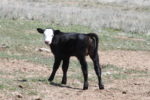 western.sare.org news economist-seeks-to-quantify-impact-of-wolf-cattle-interactions
western.sare.org news economist-seeks-to-quantify-impact-of-wolf-cattle-interactions Economist Seeks to Quantify Impact of Wolf, Cattle Interactions
Native gray wolves are returning to rugged rangelands throughout the west, raising risk for the millions of cattle who graze there. In the California counties of Lassen, Plumas and Siskiyou, many ranchers say their cattle are being stalked by wolves and show signs of stress, such as fewer pregnancies and lower birth and weaning weights. […]
Graduate Student Projects Funded for 2022
Western SARE’s Administrative Council recently approved funding of $323,118 for 13 Graduate Student Research and Education projects. The projects are located in eight Western states (Arizona, Colorado, Hawaii, Montana, Oregon, Utah, Washington, and Wyoming). The Graduate Student Research & Education Program involves Master’s or Ph.D. students partnering with producers on innovative research and outreach on […]
Tribute to Mark Frasier: Western Sustainability Pioneer Award
Citing his career-long record in sustainable, holistic range management and his leadership for the Western SARE program, the organization’s leaders recently presented the 3rd Annual Western Sustainability Pioneer Award to Mark Frasier, CEO of his family’s cattle ranch in Eastern Colorado. As one nominator noted, “Mark’s contribution and impact to sustainability in the West has […]
 western.sare.org news needs-assessment-of-sustainable-agricultural-practices-in-the-western-u-s
western.sare.org news needs-assessment-of-sustainable-agricultural-practices-in-the-western-u-s Needs Assessment of Sustainable Agricultural Practices in the Western U.S.
Western SARE has always strived to meet the needs of our region’s agricultural communities. Toward that end, we recently funded a needs assessment to better understand information gaps and future directions for research and outreach efforts related to sustainable agriculture in our region. The study also aimed to understand the regional differences that may exist […]